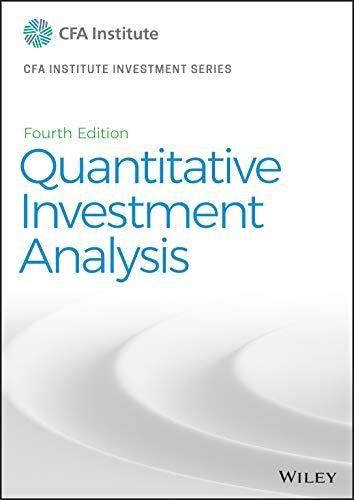6. Some developing nations are hesitant to open their equity markets to foreign investment because they fear
Question:
6. Some developing nations are hesitant to open their equity markets to foreign investment because they fear that rapid inflows and outflows of foreign funds will increase volatility.
In July 1993, India implemented substantial equity market reforms, one of which allowed foreign institutional investors into the Indian equity markets. You want to test whether the volatility of returns of stocks traded on the Bombay Stock Exchange (BSE)
increased after July 1993, when foreign institutional investors were first allowed to invest in India. You have collected monthly return data for the BSE from February 1990 to December 1997. Your dependent variable is a measure of return volatility of stocks traded on the BSE; your independent variable is a dummy variable that is coded 1 if foreign investment was allowed during the month and 0 otherwise.
You believe that market return volatility actually decreases with the opening up of equity markets. The table below shows the results from your regression.

A. State null and alternative hypotheses for the slope coefficient of the dummy variable that are consistent with testing your stated belief about the effect of opening the equity markets on stock return volatility.
B. Determine whether you can reject the null hypothesis at the 0.05 significance level (in a one-sided test of significance).
C. According to the estimated regression equation, what is the level of return volatility before and after the market-opening event?
Step by Step Answer:







